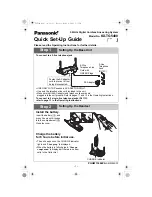
241
DX-600/800
APR 2002
Edition 1.0
All eight pins on the Ethernet cable are normally wired in this configuration accordingly.
The Electrical level follows the Manchester code configuration.
Out of balance in electrical levels indicates that a collision is occurring in a certain area. To avoid from
further malfunctions, terminating the physical end is required for coaxial cables.
If a collision is detected, transmission is stopped and a maximum of 4.8 usec. of JAM packet is sent. The
node that receives the JAM packet, discards the applicable received data. The maximum timing for collision
detection is called slot time, normally set to 49.9 usec. The interval of 9.6 usec to 10 usec after the end of
transmission frame is reserved for non-transmission period.
There are several merits to Ethernet wiring, the physical connection is easy and flexible for future expansion
due to the star topology.
7.2.4.
Repeater
The main purpose of a repeater is to extend the maximum range for the network cabling. They operate at
the OSI Physical layer, and do not filter or interpret the signal - they merely repeat (regenerate) the signal,
passing all network traffic in all directions.
They perform signal amplitude, delete errors and reschedule the timing. Repeaters also follow the 5-4-3
rule, where no more than 5 network segments connected by 4 repeaters, with no more than 3 of the
segments being populated.
Active Hubs function in part as repeaters (amplify and regenerate network signals), they occasionally are
called multiport repeaters.
7.2.5.
NIC (Network Interface Card)
NIC is an acronym for Network Interface Card, which plugs into a computer and adapts the network
interface to the appropriate standard. ISA, PCI, and PCMCIA cards are all examples of NICs.
1
1
2
2
3
3
6
6
1
1
2
2
3
3
6
6
Straight Cable
Crossed Cable
TX (+)
TX (-)
RX (+)
RX (-)
TX (+)
TX (-)
RX (+)
RX (-)
Ethernet Cable Pin Configuration
"1"
"0"
0 V
-2.05 V
Summary of Contents for DX-600
Page 357: ...memo ...
Page 358: ...DZZSM00184 0 ...
















































